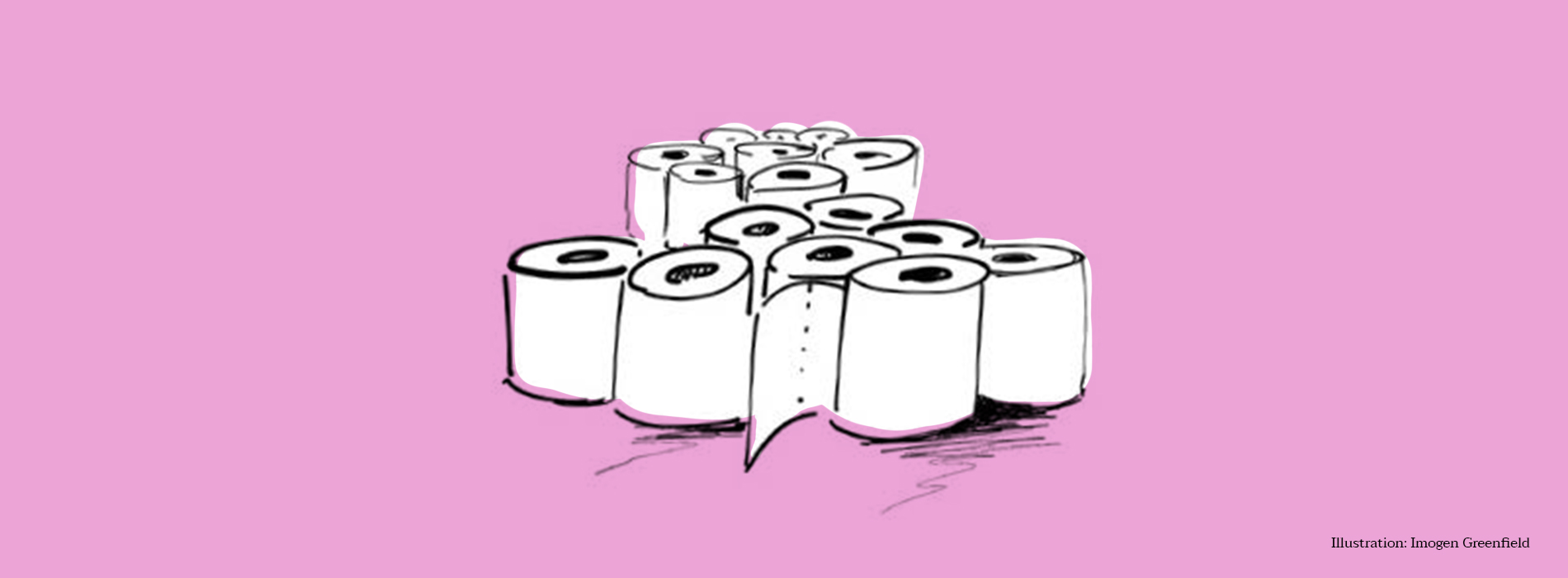
REEFTON
The Scholar of Doom
Meet the man who has foreseen Covid, border closures — and much worse.
Matt Boyd is a 45-year-old consultant and researcher based in Reefton, a serene former goldmining town at the foot of the Southern Alps. Over the past five years or so, he has established himself as a leading expert on global catastrophic risk and its implications for New Zealand. Some of the papers that Boyd has written — advocating for border closures and for designating New Zealand as a safe haven in the event of a major disaster — seemed exotic when they were first published.
But the advent of Covid-19 has changed all that. Boyd stands for an increasingly influential school of thought, a Kiwi brand of survivalism, that may have shaped New Zealand’s radical response to the pandemic. In fact, he has collaborated repeatedly with professors Nick Wilson and Michael Baker, both at the University of Otago, who as leading experts on Covid have become household names. We wanted to know more about Boyd’s thinking and called him at his home where he was riding out the latest lockdown.
What were you doing when you heard about the community case in Devonport?
I was at my desk working on a paper about the National Risk Register: how it can be improved to account for worst-case scenarios like pandemics or bioweapon attacks. Then I saw the news on my book club’s WhatsApp group. And I stopped working and waited for the announcement.
Did the return of Covid surprise you?
Not at all. We’ve had at least 10 leakages through MIQ to date. It was just a matter of time before we had another leakage, and it was likely to be Delta.
You’ve long been thinking about what a pandemic would mean for New Zealand. In 2017, you published a paper with Nick Wilson and Michael Baker. It’s called “Protecting an Island Nation from extreme Pandemic Threats: Proof-of-concept around Border Closure as an Intervention.”.
That’s right. We also gave a presentation at a conference in Rotorua.
Did it get a lot of attention?
Not really. Twenty people would be overestimating the size of the audience.
What was their feedback?
These were all health professionals. And they were saying things like: “Wow, that’s scary, I hope it never comes to that.” It was clear that they hadn’t contemplated it.
Did you detail what border closures would look like in New Zealand?
We did. We looked at the implications for the planning. We said that you’d have to protect decision-makers from legal action — like from the tourism industry and from people wanting to return from overseas. We also said that you’d need the capacity to allow trade, with ship crews being managed at the border by police and the military. And we said that, during the border closures, you’d need have to have some kind of compensation for vulnerable industries.
Amazing. That all happened in one way or another. Did you foresee managed isolation as well?
No. Because our idea was to have complete border closures. In fact, we were only looking at the reverse scenario: How do you put stranded travellers back into their own countries?
You’re not just interested in pandemics but in global catastrophic risks in general. And you’ve tried to identify island nations most likely to survive a total collapse.
That’s right, we looked at island refuges and ended up ranking them on a number of metrics. Like self-sufficiency in terms of food and energy. Social cohesiveness and resilience. And geographical location. There are 13 variables in all. And it turns out that, across all these variables, the three islands that are most likely to succeed are New Zealand, Australia and Iceland.
Were you the first to do this kind of ranking?
There was a paper before, in a journal called Futures. The authors tried to determine where would be the absolute best place to survive. And they came up with some very small islands. I don’t remember which ones exactly. But possibly it was the Pitcairn Islands.
What’s wrong with the Pitcairns?
We’re looking at preserving complex societies rather than a few people in an outpost somewhere. Yes, it’s possible that they’ll survive. But they would not be able to do brain surgery anymore or rocket engineering. That requires a huge knowledge base and a whole lot of supporting infrastructure. If you don’t want to set humanity back by thousands of years, you need a certain scale. That’s why we only considered islands with more than 200,000 people.
The case for island refuges has gained traction in recent years. There’s even a name now: the lifeboat concept. Who came up with that?
Not us. And although I may use the term occasionally, I don’t agree with it. It sends the wrong message. Because what you don’t want, at least in the case of a pandemic, is other people running to the lifeboat.
Sounds like prepping, only on a national scale.
Yes, that’s basically it. The preppers make all the preparations. And it’s counterproductive to allow others in. Because whoever comes in from the outside can be poisoned or infected. Or the food is going to get scarce.
Why would New Zealand be a good lifeboat?
Some of the things benefiting New Zealand are accidental. Like remoteness. Which is just luck, and we’ve seen that play out in Covid. We also produce far more food than we can eat. And, if carefully managed, we have an almost 100 per cent capacity to deliver renewable energy from hydroelectricity. Besides that, New Zealand is quite stable. In a catastrophe you often see a form of tribal behaviour, an us-versus-them kind of mentality. Here in New Zealand, there’s a lot of trust in government and a willingness to work with other citizens in an affable fashion.
Does New Zealand have weaknesses, too?
The military is a weakness. If it becomes obvious to other people that this place is a safe haven, you need some kind of capability to repel them. We do have allies but we don’t have a strong military capability ourselves. One way of overcoming that would be to draw up international agreements ahead of time determining that certain places like New Zealand are refuge islands.
Why would other countries agree to this?
Because it’s in the long-term interest of humanity.
This must be great fodder for philosophers, whether to help someone in the short-term or repel them for a greater good that lies in the future.
You’re right. And my approach is utilitarian. The goal is to maximise the benefit to the maximum number of people, including future generations. The other school of thought would be the deontological one where you’re saying that there are certain things that are morally right and wrong. And that it’s always wrong to let someone die, no matter what.
That’s the main counterargument against the refuge island?
There are others too. Some people say that closing borders is futile because pandemics, for example, spread everywhere and always have. And then there’s also what I call the “white-saviour criticism” because the three islands that topped our ranking are largely European. I understand that criticism. But if the goal is to preserve human technological capabilities in a catastrophe, then these three islands just happen to be best suited at this point in time. Other islands like Jamaica or Fiji could also be refuge islands — if the right measures are taken in the future.
You’ve also argued that refuge islands should prepare for a global collapse by taking in representatives of other cultures.
Why?
All cultures deserve to survive. You could have work-visa allocations and encourage hundreds of individuals representing each nation to come and live in a rotating fashion. So that, once catastrophe strikes, there will be enough people who can help sustain all these different languages and cultures.
Sounds like a zoo.
No, I don’t think so. In a zoo, the animals aren’t benefiting. Whereas in an island refuge, it’s the humans who are benefiting.
One other thing that struck me as unusual was your suggestion that the South Island and Tasmania could join forces in a catastrophe.
The South Island and Tasmania are more isolated than the North Island and mainland Australia. You have to cross that extra bit of ocean to get there. That’s something we’ve also seen with Covid — both have had few cases. A flight connecting Christchurch and Hobart is no problem. And it makes sense for the two regions to cooperate. It would increase the scale and the complexity of the island refuge.
And that’s a good thing.
Yes, that’s a good thing.
Here’s a question you must get a lot: Are you a prepper yourself?
I have food for more than six weeks. And I have a solar charger for my phone because Reefton has just three roads going in and out — and all of them run through a river valley. I also took a class in Nelson recently and learned how to grow mushrooms. Because if the sun is blocked out for some reason, mushrooms are a good source of food. But no, I don’t have an underground bunker. To be honest, life in a bunker sounds like a nightmare scenario. Just imagine emerging into a world where everyone else has died. I like the idea of helping a society survive rather than just individuals. It’s better to do this together.
One last question: did you choose to live in the South Island because you thought it would be safer there?
No. I lived in Wellington for a long time. But the exponential rise in property prices put me off buying a house there. I’m happy here in Reefton. I have a three bedroom with a veggie garden. And I love the wilderness and the mountains.
By Konstantin Richter
This story appeared in the October 2021 issue of North & South.



